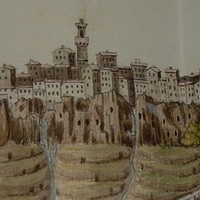
Jacob Soll
I study a strange convergence of information, politics, economics and science in the quest to understand how political liberty does or does not work, not that I fully understand what political liberty means. I love libraries and books. My new work is a cultural history of accounting, politics and crisis in the West. Future works focus on a revisionist history of free market thought, mercantilism, libraries and Enlightenment.
less
Related Authors
Francesca Bregoli
Queens College of the City University of New York
Rebecca Messbarger
Washington University in St. Louis
Lavinia D R Maddaluno
Università Ca' Foscari Venezia
Davide Mano
Centre National de la Recherche Scientifique / French National Centre for Scientific Research
Sophus Reinert
Harvard Business School
Antonella Alimento
University of Pisa
Magnus Tessing Schneider
University of Gothenburg
Ruth Tatlow
University of Gothenburg
InterestsView All (49)









Uploads
Books by Jacob Soll
Talks by Jacob Soll
Papers by Jacob Soll
From Giovanni Botero’sDella Ragion di Stato (1589) right up to ScipioneChiaramonti (1635), reason of state refers to a variegated textual corpus that, besides the explicit reference to the exertion of force, sets up various codes of political conduct aimed at a broader conception of State preservation. This goal is not merely achieved through derogatory policies or extraordinary means, but it is chiefly pursued through ordinary government. In the context of the Counter-reformation, Italian reason of state linkedprincely rule with state administration and governance and ruler’s prudential reason was slowly backed up by a set of practical knowledges: city planning, statistics, political geography, demographics, accounting to name a few.
Thus, Italian reason of state tradition constitutes an autonomous and alternative path with respect to the group of theories, which, in certain European regions, gave rise to the experimentation of sovereignty. Nonetheless, in its very broad sense, it participated in the processes of the so-called modern political rationalization, in a way that is still to be fully investigated, and exercised its influence in various languages and European regions.
Ragion di Stato, Raison d’État, Razon de Estado, Staatsräson: from the end of the Sixteenth-century onwards this expression is in fact translated and adapted to particular regional situations. The differentlanguages and experiences ofEnglish royal (or parliamentary) absolute prerogative, of Germancameralism andpolizei,of French raison d’étatand police, the growing relevance of the “interests of state” in countries such as France, England, the Netherlands:these were allintertwined and concurred to shape the modern idea of the State.
The aim of the conference istwo-fold.
On the one side, it aims at analysing the different theories of reasonof state that were developed in EarlyModern and Modern Europe. We will thus focus on England, France, Germany and the Netherlands in order to highlight their respective specificities as well as their conceptual and historical proximities. We will then compare these experiences with the Italian tradition and contrast them with the contemporary theories of sovereignty in order to clarify their mutual influences and their political, juridical and philosophical backgrounds.
On the other side, the conferenceaims at investigating the relevance of different conceptions of “reason of state” for our contemporary democratic states and societies.In fact, any conception of reason of state seems to bear with itadistinction between moral or juridical normativity (the Right, the Law), the effectivity of ordinary political action, and the necessity to face political and social emergencies.However defined, reason of state is therefore “an art” for governing the State.The changing nature of the State in contemporary globalized democracies poses the question of investigating the changings in the reasons of (the) states.